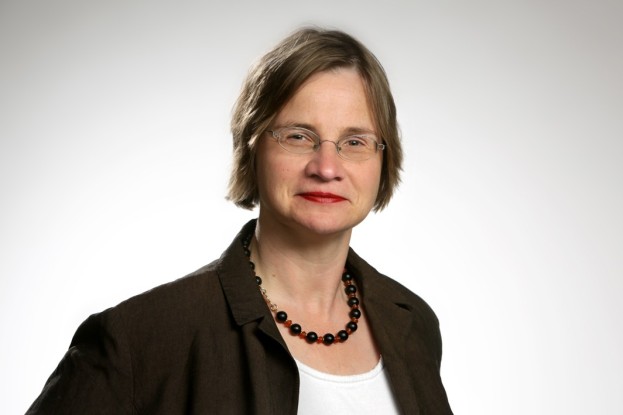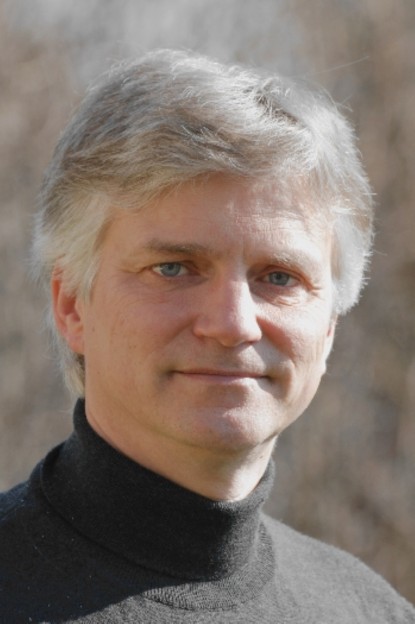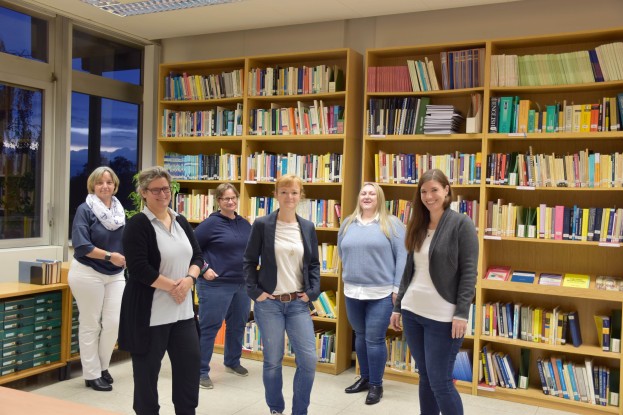This minor subject is a special minor subject. Please be sure to read the relevant information in the general information.
General information
Your degree programme, field of study, examination regulations version and (from PO 2018) minor subject version are relevant for the choice of minor subject. Please be sure to read the general information. There you will also find the number of credit points (CP) to be earned. Modules not listed here are possible with approval.
Please note: Not everything you can choose in TUCaN can also be included in the degree programme.
Due to a change in the study regulations of the minor subject, for example, certain module combinations may not be possible (because they overlap too much). In case of doubt, please ask for approval of a voluntary examination plan or ask our study coordinator.
| This table applies to you if you are studying in PO 2018 but started your studies after 2020. | |||
| Module name | CP | Module Number | |
| Elective (freely selectable) | Einführung in die Philosophie – Methoden und Begriffe | 5 | 02-21-1001 |
| Einführung in die Philosophie – Handeln und Verstehen | 5 | 02-21-1002 | |
| Einführendes Proseminar | 5 | 02-21-1003 | |
| Logik und Argumentation | 5 | 02-21-1004 | |
| Aufbau: Theoretische Philosophie I | 5 | 02-21-1005 | |
| Aufbau: Theoretische Philosophie II | 5 | 02-21-1006 | |
| Reflexion normativer Ordnungen | 5 | 02-21-1007 | |
| Aufbau: Praktische Philosophie I | 5 | 02-21-1008 | |
| Aufbau: Praktische Philosophie II | 5 | 02-21-1009 | |
| Vertiefung: Theoretische Philosophie I | 5 | 02-21-1010 | |
| Vertiefung: Theoretische Philosophie II | 5 | 02-21-1011 | |
| Vertiefung: Praktische Philosophie I | 5 | 02-21-1013 | |
| Vertiefung: Praktische Philosophie II | 5 | 02-21-1014 | |
| Module name | CP | Module Number | |
| Elective (freely selectable) | Einführung in die Philosophie – Methoden und Begriffe | 5 | 02-21-1001 |
| Einführung in die Philosophie – Handeln und Verstehen | 5 | 02-21-1002 | |
| Einführendes Proseminar | 5 | 02-21-1003 | |
| Logik und Argumentation | 5 | 02-21-1004 | |
| Aufbau: Theoretische Philosophie I | 5 | 02-21-1005 | |
| Aufbau: Theoretische Philosophie II | 5 | 02-21-1006 | |
| Reflexion normativer Ordnungen | 5 | 02-21-1007 | |
| Aufbau: Praktische Philosophie I | 5 | 02-21-1008 | |
| Aufbau: Praktische Philosophie II | 5 | 02-21-1009 | |
| Vertiefung: Theoretische Philosophie I | 5 | 02-21-1010 | |
| Vertiefung: Theoretische Philosophie II | 5 | 02-21-1011 | |
| Vertiefung: Praktische Philosophie I | 5 | 02-21-1013 | |
| Vertiefung: Praktische Philosophie II | 5 | 02-21-1014 |
| Module name | CP | Module number | |
|---|---|---|---|
| Elective (freely selectable) | Theoretische Philosophie I (changing subjects) | 5 | 02-21-2001 |
| Theoretische Philosophie II (changing subjects) | 5 | 02-21-2002 | |
| Praktische Philosophie I (changing subjects) | 5 | 02-21-2004 | |
| Praktische Philosophie II(changing subjects) | 5 | 02-21-2005 | |
| Technik und Wissenschaft (changing subjects) | 3 | 02-21-2007 | |
| Theorie und Geschichte des Wissens (changing subjects) | 3 | 02-21-2008 | |
| Politiken und Praktiken des Wissens | 3 | 02-21-2009 | |
| Schwerpunkt I (from module catalogue 1B-3B) | 5 | 02-21-2011 | |
| Schwerpunkt II (from module catalogue 1B-3B) | 5 | 02-21-2012 | |
| Technik- und Naturphilosophie | 4 | 02-21-2021 | |
| Wissenschaftstheorie der Technikwissenschaften | 4 | 02-21-2022 | |
| Hermeneutik, Kultur, Kunst, Technikgeschichte | 4 | 02-21-2023 | |
| Ethik und Technikbewertung | 4 | 02-21-2025 | |
| Nachhaltigkeit, Vorsorge, Sicherheit | 4 | 02-21-2026 | |
| Ethik und Anwendung | 4 | 02-21-2027 | |
| more module possible upon approval* | |||
| * All elective modules from the core study programmes are eligible, provided there is sufficient capacity. | |||
| If you are planning to write your Master's thesis in another subject area, we recommend that you clarify the options in advance with the lecturer(s) you are considering as supervisor(s) and discuss the study plan in the non-mathematical areas. Please also note: When registering a Master's thesis, a second reviewer from Department 04 must agree to the topic and thus confirm that the topic is sufficiently mathematically orientated. This is not always the case. | |||
| Module name | CP | Module number | |
|---|---|---|---|
| Elective (freely selectable) | Ethik und Anwendung | 4 | 02-21-2027 |
| Ethik und Technikbewertung | 4 | 02-21-2025 | |
| Hermeneutik, Kultur, Kunst, Technikgeschichte | 4 | 02-21-2023 | |
| Nachhaltigkeit, Vorsorge, Sicherheit | 4 | 02-21-2026 | |
| Politiken und Praktiken des Wissens | 3 | 02-21-2009 | |
| Praktische Philosophie I | 5 | 02-21-2004 | |
| Praktische Philosophie II | 5 | 02-21-2005 | |
| Schwerpunkt I | 5 | 02-21-2011 | |
| Schwerpunkt II | 5 | 02-21-2012 | |
| Technik und Wissenschaft | 3 | 02-21-2007 | |
| Technik- und Naturphilosophie | 4 | 02-21-2021 | |
| Theoretische Philosophie I | 5 | 02-21-2001 | |
| Theoretische Philosophie II | 5 | 02-21-2002 | |
| Theorie und Geschichte des Wissens | 3 | 02-21-2008 | |
| Wissenschaftstheorie der Technikwissenschaften | 4 | 02-21-2022 |
| Module name | CP | Module Number | |
| Elective (freely selectable) | Einführung in die Philosophie – Methoden und Begriffe | 5 | 02-21-1001 |
| Einführung in die Philosophie – Handeln und Verstehen | 5 | 02-21-1002 | |
| Einführendes Proseminar | 5 | 02-21-1003 | |
| Logik und Argumentation | 5 | 02-21-1004 | |
| Aufbau: Theoretische Philosophie I | 5 | 02-21-1005 | |
| Aufbau: Theoretische Philosophie II | 5 | 02-21-1006 | |
| Reflexion normativer Ordnungen | 5 | 02-21-1007 | |
| Aufbau: Praktische Philosophie I | 5 | 02-21-1008 | |
| Aufbau: Praktische Philosophie II | 5 | 02-21-1009 | |
| Vertiefung: Theoretische Philosophie I | 5 | 02-21-1010 | |
| Vertiefung: Theoretische Philosophie II | 5 | 02-21-1011 | |
| Vertiefung: Praktische Philosophie I | 5 | 02-21-1013 | |
| Vertiefung: Praktische Philosophie II | 5 | 02-21-1014 |
| A non-mathematical specialisation is only possible with the approval of the examination board. | |||
| Module name | CP | Module number | |
| Mandatory | Technik- und Naturphilosophie | 4 | 02-21-2021 |
| Wissenschaftstheorie der Technikwissenschaften | 4 | 02-21-2022 | |
| Hermeneutik, Kultur, Kunst, Technikgeschichte | 4 | 02-21-2023 | |
| Ethik und Technikbewertung | 4 | 02-21-2025 | |
| Nachhaltigkeit, Vorsorge, Sicherheit | 4 | 02-21-2026 | |
| Ethik und Anwendung | 4 | 02-21-2027 | |
| more module possible upon approval* | |||
| * All elective modules from the core study programmes are eligible, provided there is sufficient capacity. | |||
| Every combinations requires approval (opens in new tab). | |||
| If you are planning to write your Master's thesis in another subject area, we recommend that you clarify the options in advance with the lecturer(s) you are considering as supervisor(s) and discuss the study plan in the non-mathematical areas. Please also note: When registering a Master's thesis, a second reviewer from Department 04 must agree to the topic and thus confirm that the topic is sufficiently mathematically orientated. This is not always the case. | |||
In the field of Philosophy, there is currently no wide range of options for writing a mathematically orientated Master's thesis.
The non-mathematical specialisation in Philosophy is therefore currently not actively advertised on the Master's degree programme in Mathematics.
This does not prevent individual students from studying such a specialisation if they are able to put together a meaningful study programme through a suitable combination of modules. This must then be approved on a case-by-case basis by the departments involved. In particular, the option of a mathematically orientated Master's thesis in the specialisation must be explored.
In this case, students also bear the risk that there is no suitable replacement for modules originally planned, but which are later unwanted or no longer offered, and the specialisation cannot be completed.
If you have any questions, please contact the examination board.



